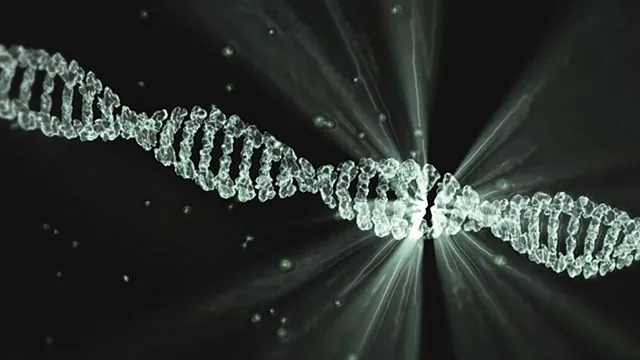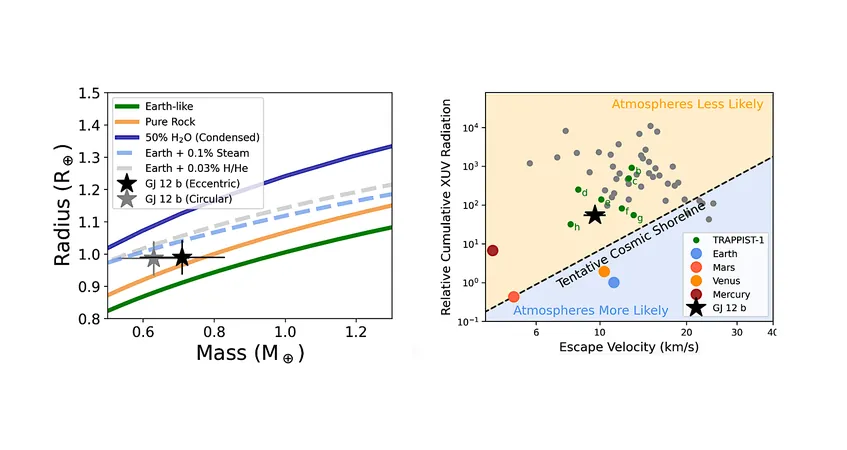
Breakthrough Discovery Reveals Two Genes That Could Revolutionize Prostate Cancer Treatment!
2025-01-17
Author: Mei
Breakthrough Discovery Reveals Two Genes That Could Revolutionize Prostate Cancer Treatment!
In an exciting development for prostate cancer research, scientists have discovered two critical genes that contribute to the formation of prostate tumors. These genes, Bzw2 and Eif5a2, work in tandem within the PI3K-AKT signaling pathway, a pathway known for its role in regulating cell growth, division, and apoptosis, crucial aspects for understanding how cancer develops.
Prostate cancer is one of the most prevalent cancers among men, and in the UK alone, it claims thousands of lives every year. Despite previous research pinpointing the role of a mutation in the Pten gene—responsible for 20% of primary prostate cancers—scientists had not previously explored the contributions of additional genetic mutations. The identification of Bzw2 and Eif5a2 represents a pivotal step forward, offering new avenues for diagnosis and treatment that could significantly improve patient outcomes.
A Novel Approach to Genetic Screening
The study, featured in the prestigious Nature journal Oncogene, was spearheaded by researchers from The Institute of Cancer Research, London, with funding support from Prostate Cancer UK. Their novel approach focused on understanding which specific genetic mutations directly lead to cancer progression, as opposed to those that occur coincidentally. By concentrating on the PI3K-AKT pathway, which has long been associated with the malignancy of prostate cancer, they screened genetically altered samples derived from mice deficient in the Pten gene.
Notably, the researchers implemented a technique known as transposon mutagenesis screening. This method serves as a “cut-and-paste” system for DNA, illuminating the specific genetic interactions contributing to tumor formation. Upon identifying Bzw2 and Eif5a2 as key genes, further experiments using lab-created prostate organoid models underscored their roles in tumor growth. They found that alterations in these genes activated the PI3K-AKT signaling pathway and heightened the proliferation of cancer cells. Moreover, organoids overexpressing Eif5a2 were remarkably sensitive to AKT inhibitors, a promising insight for upcoming treatments.
The Promise of AKT Inhibitors
This groundbreaking research reinforces the validity of AKT inhibitors in targeting prostate tumors. Active AKT encourages cell survival and proliferation, making it a prime focus for therapeutic strategies. Clinical trials are currently assessing the efficacy of these inhibitors, including the recently FDA-approved Truqap (capivasertib), which has shown promising results in combination therapies. The findings suggest that Eif5a2 could serve as a potential biomarker, enabling clinicians to select patients who are most likely to benefit from such innovative treatments.
According to Dr. Jeff Francis, senior scientific officer and lead author of the study, the research shines a light on early-stage prostate cancer—a phase often overlooked—while highlighting Eif5a2 as a potential common player in oncology across various cancers.
Dr. Amanda Swain, the senior author, echoed this sentiment, noting that the research validates the multitude of pathways leading to PI3K activation in prostate cancer and opens up new discussions on drug optimization and the future of personalized therapies.
A Call to Action in Research
Despite the significant strides made, experts, including Hayley Luxton from Prostate Cancer UK, emphasize the necessity for further investigations into the underlying genetics of prostate cancer. She highlighted the urgency of understanding the genetic accelerators of this disease, as it remains a leading cause of cancer death globally. With continued research, there’s a hopeful outlook that the insights gained could translate into innovative treatment protocols tailored to individual genetic profiles, paving the way for better patient outcomes and a brighter future in the fight against prostate cancer.
Stay tuned, as this exciting journey in cancer research continues to unfold!




 Brasil (PT)
Brasil (PT)
 Canada (EN)
Canada (EN)
 Chile (ES)
Chile (ES)
 Česko (CS)
Česko (CS)
 대한민국 (KO)
대한민국 (KO)
 España (ES)
España (ES)
 France (FR)
France (FR)
 Hong Kong (EN)
Hong Kong (EN)
 Italia (IT)
Italia (IT)
 日本 (JA)
日本 (JA)
 Magyarország (HU)
Magyarország (HU)
 Norge (NO)
Norge (NO)
 Polska (PL)
Polska (PL)
 Schweiz (DE)
Schweiz (DE)
 Singapore (EN)
Singapore (EN)
 Sverige (SV)
Sverige (SV)
 Suomi (FI)
Suomi (FI)
 Türkiye (TR)
Türkiye (TR)
 الإمارات العربية المتحدة (AR)
الإمارات العربية المتحدة (AR)